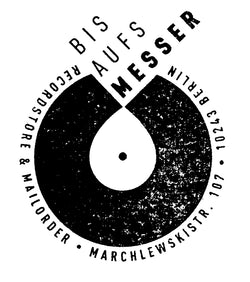Watching a movie by Tati is a surprising experience; in his films, sound and music speak more than do words, overtaking the conventional discourse – and boredom – of adulthood. Hulot remains silent, or mumbles. Tati knows all about the noises of the modern world: beeps, rings, crackles, pneumatic drill, cars, mechanical, electrical and rubbery sounds, the high heels of secretaries and typewriters, factory noises, creaking doors, sighing chairs, machines and technical machines, franglais, vacuum cleaners and the whole range of small appliances… With all of that urban and domestic jumble, plastics of all sorts, linoleum and formica, he composes a virtuoso partition. Signs and signals, warning sounds and sirens mislead us in the urban space. Tati maliciously disorients us. Maximalist, he records on five tracks in skilful, tasteful rhythms – a pleasure for the senses. Hearing Mon Oncle, Les Vacances de Monsieur Hulot, Playtime changes one’s outlook onto the world – never again will you perceive the noises of towns and villages in the same way. The modern city is Hulot’s playground – with it he invents a totally new soundscape. Then there’s the organic, the countryside, the barking dogs, the wasp bothering François on his bicycle, all the way to the mailman’s fall into the river…When we met Jacques Tati in his modest, shooting paraphernalia-filled office on rue de Bièvres, he spoke about music hall and its rules, silent cinema, his famous pantomime Impressions Sportives… In praise of gestures and noises, and not a word. As for his movies’ music, which he described as color, it bursts right into the mess, opens up the celebration: drummer’s frenzy, frenetic dance at the Royal Garden… Never illustrative, it shakes up the thrumming of the modern world and makes its way through the story, just like a real character. Images and sound are edited as one single material, both equally partaking in the story. Tati masters the art of tempo – there’s not one sound, one note, one silence too many in the scenario. Pure sophistication.
So try it tonight; put the record on, lie down, close your eyes and listen. If you know Tati’s movies, your journey shall be visual and total, complete with sequence shots, colors, blurry decors, the refinement of neon lights, the modern city and its airport, Saint-Maur or Villa Arpel style, Saint-Sévère or Saint-Marc-sur-mer’s “Hôtel de la plage”, big top or auto show, Daki the dachshund, little Gérard, the American tourists… It will all come back to your mind. Phatasmagoria. Should you not ever have seen one Tati’s brilliant films, nor his footwork and melancholy jokes, nor Hulot’s poetic, funny perdition and all of his other meticulously sketched characters, then you’re in for a trip. Your imagination’s bound to take off – for Tati, sound is cinema’s big thing. Magnificent maniac, he captures and catches sounds and music in a skilful, sensuous architecture. O joy of perception! The world’s noises concern and amuse him; they say just as much as the image does, take it into modernity, tell of our shortcomings, maladjustment and bewilderment. From music hall he kept a liking for Foley and the art of recreating sounds in a poetic otherworld. From the villages he brought back the funfair and the accordion; from the modern town: music the American way, jazz, some very Parisian tunes, and other merry-go-round melodies… Even without the images, it’s still cinema!
What’s more: for his last scenario, Confusion, Tati had planned to collaborate with the Sparks, the talented band behind the soundtrack for Annette, Léos Carax’s surprising film… From Mr Hulot’s house’s canary whistling in the sunshine to musical’s fantastic puppets, we’re undoubtedly siding with poets. - Macha Makeieff

